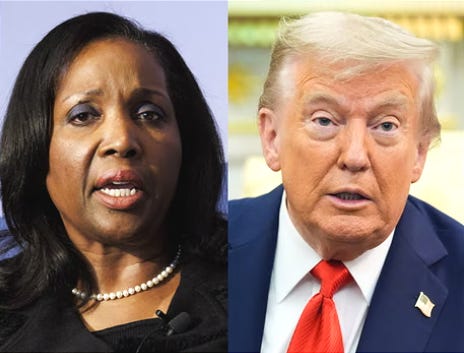Anti-Immigration Protests Grip Australia, French Trade Union Set to Protest, US Federal Appeals Court Declares Tarriff Illegal, Thai Constitutional Court Removes PM Shinawatra, and More
Grinfi Political Risk Intelligence Briefing
Bonne rentrée! Welcome to this week’s edition of Grinfi Political Risk Edge, your trusted source for expert political risk analysis and strategic intelligence. Thorough, insightful, and industry-focused. In this issue, we examine key geopolitical events shaping global markets and provide deep, beyond-the-headlines assessment. We deliver clarity in uncertainty and strength in decision-making. Anticipate, Adapt, and Excel!
But first, let’s begin the week with a laugh 😄 to brighten the mood.
Help us serve you better and improve Grinfi Political Risk Edge by taking this brief, fully anonymized reader survey.
"Power is everywhere; not because it embraces everything, but because it comes from everywhere."
Michel Foucault, The History of Sexuality, Volume 1: The Will to Knowledge. Translated by Robert Hurley. Pantheon Books, 1978. Originally published in French in 1976.
Disclaimer: The opinion expressed in this quote does not represent our views but is intended for reflection purposes only.
From Grinfi Political Risk Observatory (GPRO), here’s what we’re monitoring:
High Impact Situational Updates
EXECUTIVE SUMMARY
Last week, several strategic events reshaped the global risk environment with direct consequences for security, markets, and regulation.
“At Grinfi, we track immediate/direct fragility and systemic contagion (cascading effect), ensuring leaders see risks before they spread.”
In Washington, a federal appeals court ruled that most of President Trump’s global tariffs were illegal, leaving them in place only until October 14 while awaiting Supreme Court review. This has injected uncertainty in U.S. trade policy and relations with major partners. At the same time, the President’s dismissal of Federal Reserve Governor Lisa Cook raised concerns over central bank independence. Markets interpreted this as a direct threat to institutional credibility. The combined impact left Treasuries and the dollar vulnerable and weakened in an emerging-market-style dynamic, while gold rallied on safe-haven demand.
In Europe, French Prime Minister François Bayrou’s €44 billion deficit plan triggered sharp political backlash and market turbulence. Bond yields spiked to 3.53%, major banks fell by more than 4%, and trade unions declared a nationwide strike for September 18, in addition to the much-publicized “Block Everything” protest slated for September 10. The government also faces collapse, as a vote of no confidence to determine its fate is scheduled for September 8. The risk of fiscal contagion has raised alarm across Eurozone markets.
In Asia, Thailand’s Constitutional Court ousted Prime Minister Paetongtarn Shinawatra over ethics violations, deepening political instability and creating a leadership vacuum. Meanwhile, Indonesia was rocked by mass protests against the political establishment, with demonstrators targeting the home of Finance Minister Sri Mulyani Indrawati. Anger over inequality and perks for legislators fueled unrest, forcing President Prabowo Subianto to promise crackdowns and benefit cuts. Rising social pressures and anti-government sentiments have raised investor unease and undermined confidence across Southeast Asia’s largest economy.
In Africa, Guinea’s junta suspended three leading opposition parties for 90 days ahead of this month’s [September] constitutional referendum, raising governance risks as democratic legitimacy is eroded. Tanzania cleared President Samia Suluhu Hassan to run in October’s election while barring key rivals, raising transparency concerns. Across the continent, South Africa’s rand weakened and equities slipped, while solar imports from China surged 60% year-on-year, signaling both energy transition opportunities and strategic dependency. Today, September 1, Sidi Ould Tah officially takes office as President of the African Development Bank (AfDB), succeeding Dr. Akinwumi Adesina.
In South America, Bolivia’s Supreme Court ordered a review of the charges against right-wing political detainees, including former interim President Jeanine Áñez, a move that could potentially lead to her release and reinforce a rightward political shift that may reshape the country’s regulatory environment and foreign investment climate. Meanwhile, as tensions between the US and Venezuela flare, the United States has deployed naval assets and troops to the southern Caribbean near Venezuela as part of an expanded interdiction mission, raising regional security concerns. In response, Venezuelan President Maduro, concerned over what he perceives as regime-change intent, has mobilized more than 4 million stand-by militia.
In Australia, anti-immigration protests under the “March for Australia” banner drew thousands, including extremist groups, raising polarization risks in a traditionally stable democracy.


